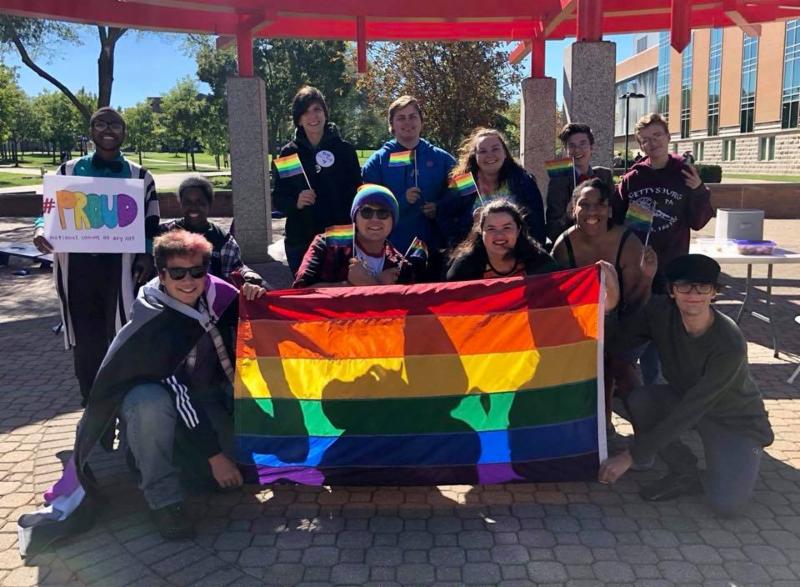
Photograph from WSU Office of LGBTQA Affairs’ Twitter.
The historic adoption services case Fulton v. Philadelphia heard before the Supreme Court on Nov. 4th causes concern among members of the Wright State University (WSU) LGBTQA and minority communities.
Overview of case
The city of Philadelphia contracted with the nationwide adoption organization Catholic Social Services (CSS) to handle adoption services in the city. CSS denies same-sex couples from adopting, breaking Philadelphia’s non-discrimination policy. Claiming religious freedom, CSS sued the city, whereby the case arrived at the Supreme Court.
Possible outcomes
The Court could rule in the city’s favor and uphold anti-discrimination policies as has been the case in the lower courts, or they could rule in CSS favor, letting government-contracted religious organizations uphold their values. The Court has a 6-3 conservative majority that will have an impact on this case.
When asked about possible outcomes, WSU political science professor and retired civil rights lawyer John Feldmeier said “it breaks down along ideological grounds. I think we will just see more of the same where you’ve already got an already conservative court that has moved further to the right in the last few years.”
CSS holds offices and contracts all across the nation including Dayton, OH. Any law or precedent set by the Court, in this case, will affect all branches of CSS.
Community Concerns
Worried about the outcome of the case, Emily Yantis Houser, Director of WSU LGBTQA affairs and professor said “It may affect their [LGBTQA students] future family decisions. I see a lot of young people already thinking about being able to marry and their people being able to start families.”
Others worry about the scope of the case. The majority conservative justices could use a narrow judicial precedent or they could take a more active approach, opening the conversation to other anti-discrimination laws. A broader interpretation is what minorities fear.
“This just isn’t about foster and adoption services, this could have sweeping impacts for all different kinds of government-contracted services, including healthcare. This could have huge ramifications, or potentially, it could have none” states Dr. Jessica Barnett, a WSU woman, gender and sexuality professor.
In recent months conservative justices have spoken out against LGBTA cases, some like Justice Thomas regret their decision in the Obergefell v. Hodges gay marriage case. Recently appointed Justice Barrett has ties to Catholicism and has previously ruled against minority rights cases.
Feldmeier points out that “The Supreme Court has the power to essentially issue national policy on matters before them.”
Judicial decisions take six months or longer to be ruled on, only when a decision is issued will the extent of impact be known.
